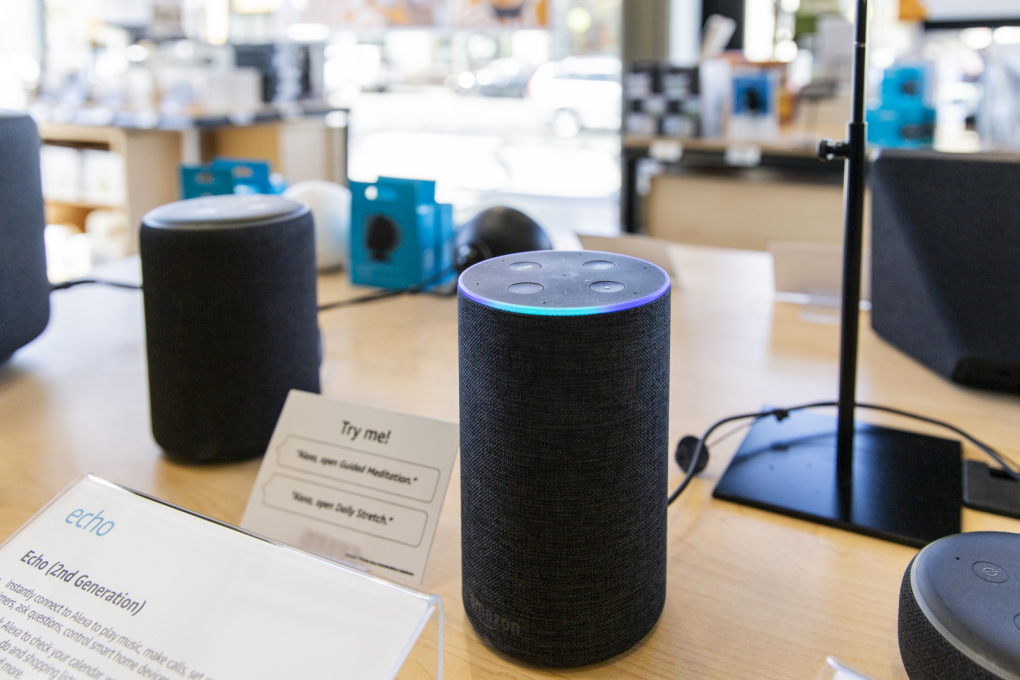Advertisement
Hey Alexa, do smart speakers belong to our future?
Consumers are buying more smart speakers than ever, but experts say they’re only the earliest form of voice-controlled AI devices
Reading Time:3 minutes
Why you can trust SCMP

This article originally appeared on ABACUS
Thinking of buying a Google Home, Apple HomePod or Amazon Echo as a holiday gift for your tech-loving friends and relatives? It might not be as future-proof as you hope, according to one of the most well-known tech CEOs in China.
In the future, voice-controlled AI will be mobile and wearable, said Wang Xiaochuan, founder of search giant Sogou. Whether it’s through microphones, GPS or various types of sensors, voice assistants will capture a vast amount of data to adapt to our needs. Right now, smart speakers don't follow these trends and therefore don’t belong to our future, he said.
Since Amazon launched Echo in 2014, tech companies from Apple to Alibaba have been racing to introduce their own smart speakers. The product has been described as the next battlefield in consumer technology. If Microsoft helped bring a PC to every desk and every home, and Apple kicked off the smartphone era -- then who’s going to define the age of smart speaker, the computer that we live with?
Advertisement
(Abacus is a unit of the South China Morning Post, which is owned by Alibaba.)

Advertisement
Last quarter, the world shipped nearly 45% more smart speakers than the same period last year, according to research agency Canalys. Smart displays grew a whopping five fold. The upward trend is expected to continue, with research firm IDC forecasting shipments to reach 200 million units by 2023.
Despite their apparent rising popularity, smart speakers haven't gotten much smarter since Echo first arrived. For Americans, the most popular uses for smart speakers remain simple tasks such as playing music, checking the weather and asking “fun” questions, a survey by Adobe revealed earlier this year. Few people use them for more complex functions, such as researching hotels and flights or ordering takeout.
Advertisement
Select Voice
Choose your listening speed
Get through articles 2x faster
1.25x
250 WPM
Slow
Average
Fast
1.25x